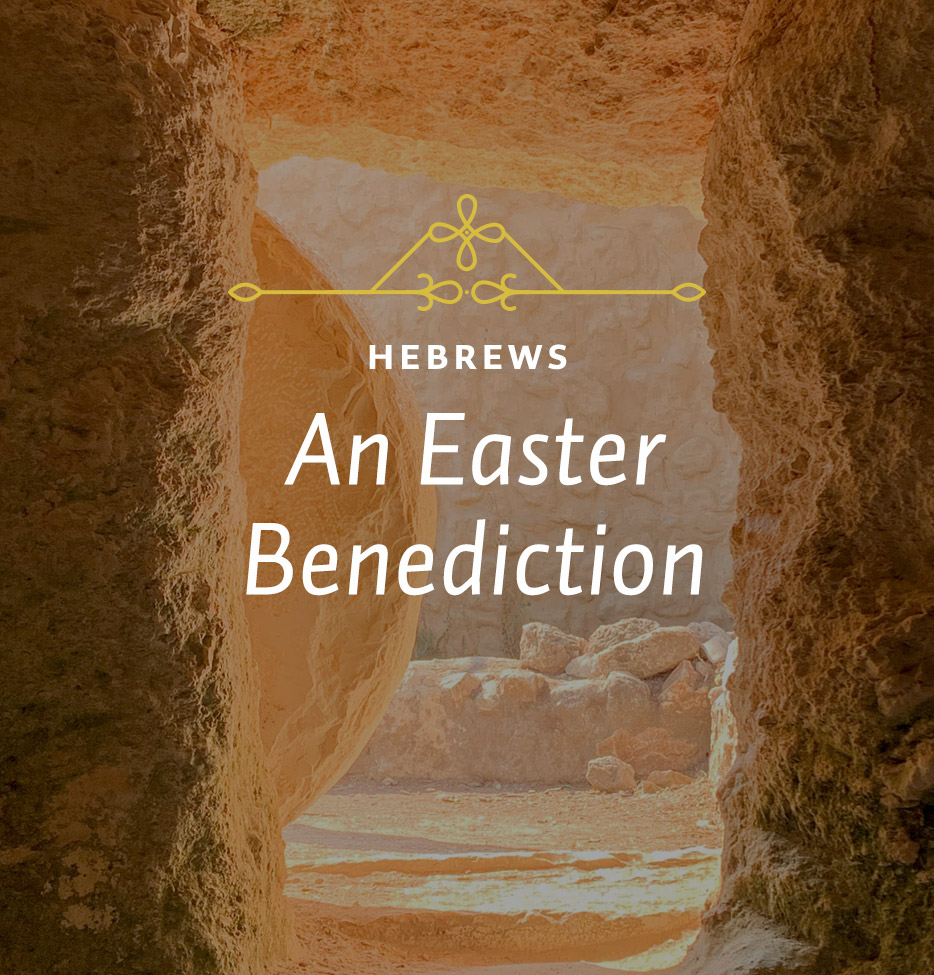n yesterday’s study we looked at the invocation from our text, which addresses God as the God of peace. We said that God was not to be understood as peaceful in the sense of being placid or calm.
He’s not peaceful either in the sense that because He’s in charge, everything’s alright. Robert Browning thought he was. You know that great line from Robert Browning, probably the best-known line that he wrote, “God’s in His heaven; all is right with the world.” It sounds wonderful, of course, except it’s just poetic dribble. God is in His heaven, alright. There’s no doubt about that. But all is certainly not right with the world. The world’s in a mess. The world is a warring cockpit of conflicting emotions, and the war that we experience is not only the war between peoples or nations. We have plenty of examples of that. Just pick up your newspaper. People are killing each other by the scores, hundreds, even thousands, day by day. We carry war around within ourselves. That’s why people are in such turmoil, and why they’re turning to counsellors all the time, hoping that they will be able to help them work through all these unruly impulses that they have.
However, the most serious war of all, though we seldom give attention to it, is the warfare of the human heart against God. We are against God and His rule because we want to rule ourselves. It’s what sin is all about. So when we read a phrase like “the God of peace,” this isn’t any merely placid or serene sentiment that the author is talking about. This is a phrase that says God is a God of peace because He’s made peace. He’s done it through Jesus Christ. That’s a wonderful thing, indeed.
The second part of this benediction is this compound clause that sets forth the grounds for the petition. If we’re going to ask God to do something, how can we have any encouragement to believe that He will do it? Well, that’s what this phrase is all about. It says, “who through the blood of the eternal covenant brought back from the dead our Lord Jesus, that great Shepherd of the sheep.” We know God has done that. That’s a fact of history. That’s not just religious mythology; that’s something God has done. And because He has done that, we remember it on a day like this. We can be bold to lay our requests before Him and believe that He will work.
Now let’s look at this phrase by phrase. The first part is “the blood of the eternal covenant.” We know what that means. Blood always refers to sacrifice, so it has to do with the sacrifice of Jesus Christ. He died on the cross in our place, suffering for our sin. Now when it talks about the blood of the eternal covenant, it’s stretching our thinking beyond the knowledge of a sacrifice to say that this was a sacrifice that God Himself had determined to perform before even the foundation of the world.
What is a covenant? A covenant is a formal agreement or contract. It’s a legal thing, and God has made an eternal covenant through the blood of Christ. The Bible speaks of a number of covenants. There’s a covenant with David, for example. God promised David that he would have an heir who would sit upon his throne and rule forever and ever. David, when he heard that, understood that this was nothing that could be fulfilled by a mere human being. He said this is not the condition of mere men because all men die. And so David understood that this had to refer to a divine being. Consequently, David was looking forward to the Messiah, and God fulfilled that by sending Jesus Christ, who is the King of kings and the Lord of lords.
God established what He described as an “everlasting covenant” with Abraham even before the covenant He made with David. He told Abraham to leave the land where he was living and go into a land that the Lord was going to show him. Moreover, God said He was going to bless Abraham by giving him numerous posterity. And Abraham believed all that God said, and was considered righteous by God because of his faith in all that God had promised.
You go back even beyond that to the Garden of Eden, and there you find God establishing a covenant with Adam and Eve. Theologians call it the “covenant of works.” In this covenant God told them they were not to eat of the fruit of the tree of the knowledge of good and evil, and that if they disobeyed they would surely die. And of course we know what happened. They ate of that forbidden tree, and death came upon them and upon all the race. In response, God came to them in grace and promised a Redeemer.






